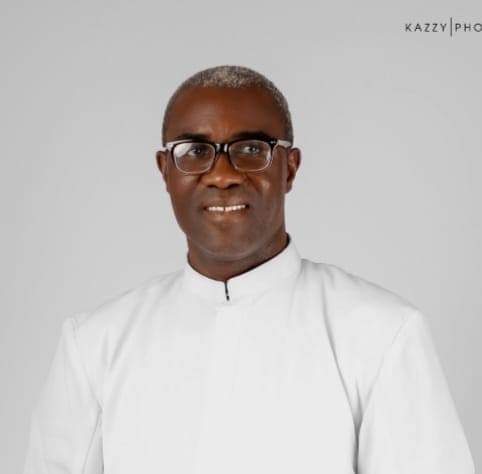
COVID-19, FIVE YEAR LATER
After sneaking on us for most of 2019, 2020 became paralyzed by the spread of Covid-19 wreaking havoc throughout the world. From official estimates, about seven million lost their life and millions continue to battle COVID-related health complications.
From travel bans necessitated by COVID, to the collapse of business activities the world over, it is only now, five years on that the world is beginning to witness a resurgence. In many countries, air travels is yet to reach the Pre-COVID era rates. Human relationships have been disrupted in ways that things will never be the same again. Nothing is going to be normal again and we have been getting used to this new normal. When death hung in the air, we survived! There is enough reason for hope for a better future, but we cannot rest on our oars. We have to work to make a future that we desire even as a Church.
In the religious setting, not much progress has been made. COVID-19 disrupted participation at religious event such that watching religious event on TV and social media became the order of the day and many have not been able to wean themselves off this alternative and return to physically practicing their faith. For instance, while the kiss of peace has returned to the celebration of the Mass, it is not uncommon to see some bowing to one another instead of offering their hands. While Communion on the tongue has returned, some continue to stretch their hands out to receive Holy Communion. Is this preferred option still out of fear of contracting any disease? Yes, Churches are full again in many places, but priests are also aware of those who are no longer interested in religious or spiritual activities, questioning the relevance of faith whose God was not able to stop COVID-19 and the millions of death that ensued. Occasional catechesis will not do, on-going catechesis about human obligations and responsibility to creation must become part and parcel of being Church today.
The Church must become proactive and have in place contingency plans that she can activate for the safety of ministers and members, but more importantly a precise process of accompaniment that will give comfort and hope to those unable to access regular Church programmes. This is where Social Media comes in, Pastors can in the comfort of their rectory or office record their homilies and worship and share with people. During this period of calm, such broadcast should be as brief as possible so that it serves only as invitation to the real celebration. Even, homilies shared online should wet people’s appetite and inspire them to yearn for more in a truly human encounter with the divine in an atmosphere of worship fit for God.
While Paul revealed Jesus as the unknown God being long for by the Greeks, today’s world need Christians to reveal the love of God more concretely to her. In a world of indifference and selfishness, the Church is called upon to become a home of love where all feel welcomed and treasured. Our COVID-19 experience challenges us, both the world and the Church to engage more people than just our members, because what affects one, affects all. You remember in the face of COVID-19, the first world initially thought of taking care of their members, while rationing needed vaccine and technical knowhow for the rest of the world. But it soon dawn on them that in a globalized world, safety is not just about shielding oneself from people but also about ensuring that others live in safety and good health. This should be the working dictum of the Church – the well-being of all. Global crises requires global solutions.
Furthermore, sharing of resources and life supporting goods must be considered part of being Church in a Post-COVID world. To carry out this apostolate effectively, lots of funding is required and the utilization of modern financial platforms can only yield better dividends. For instance, donors no longer need to attend Church services before they give. They can transfer and even set up a regular reoccurring giving. This will ensure that much needed funds come in regularly to support the mission of the Church.
Finally, the Church is a spiritual entity and an incubator of hope, she must constantly nurture that hope in the world and especially in her people. Our Covid survival experiences should become innate in us so that we respond to situation in ways that bring life out of death and gives hope to the waiting world. By his stripes, we have been healed and life will get better if we live like the Master, Jesus Christ, our Saviour. Challenges and problems do not have the last say. Our resilience in the face of problems can shape our future and if we realize that we are not alone and that God is with us, then hope will reign supreme and there will be no hurdle we cannot overcome, no problem we cannot surmount and no evil that we cannot vanquished through Christ, who strengthens us.



Leave a Comment